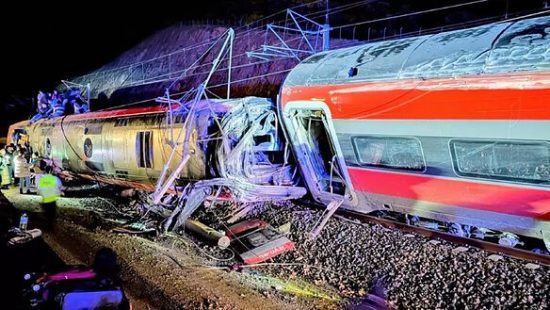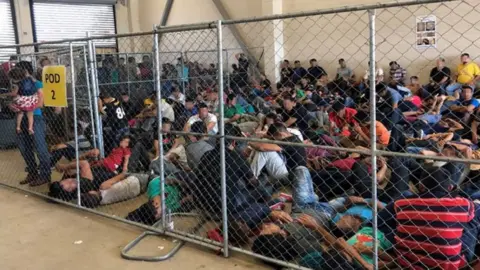“Everything we do is based on listening to the people on the ground, in the communities we represent.”
Eunisses Hernández is facing tough competition in her bid for re-election as Councilmember for District 1. Several candidates have already registered for the June 2, 2026 election, emphasizing what they describe as a lack of leadership and the absence of a meaningful connection between the community and the council office.
The councilmember strongly denies these accusations. In response to criticism from opponents who claim she doesn’t meet with constituents and is absent from the community, Hernandez firmly insists this is not true.
“Everything we do is based on listening to the people on the ground, in the communities we represent,” she says. “My cues come from the community.”
She points to her defense against ICE raids and the support her office provides to those affected by such actions as evidence of her engagement with the community.
In an interview with Parriva, Eunisses—known widely by her first name—defends her record and explains why she supported the controversial project to install an iron fence around MacArthur Park.
By far, the most significant issue on Hernandez’s agenda since taking office has been addressing the challenges at MacArthur Park. She secured $27 million to improve the conditions at the park, which had become synonymous with drug use, drug trafficking, homelessness, and violence.
Recently, the Los Angeles Board of Recreation and Park Commissioners voted to approve the construction of a $2.3 million green iron fence around both sides of MacArthur Park.
“We’re not displacing people,” she emphasizes.
Hernandez says the idea for the fence emerged from conversations with community members and is intended to “help preserve the park’s infrastructure.” For example, a playground that had been installed was burned down within a few months. It has since been rebuilt.
The fence will protect the playground, facilitate repairs to restrooms, and allow for graffiti removal during hours when the park is closed.
She insists the fence is not meant to limit access but rather “to give the park a moment to breathe” and allow the infrastructure “to last more than a week.”
The fence is part of the broader renovations and improvements Hernandez has supported at the park, which also include tree planting, creating a healthcare hub and respite center, deploying mobile overdose response teams, solarizing streetlights, adding more cleaning crews, deploying street medicine teams, and supporting peacekeepers who help vulnerable people taking refuge in the park.
“The first time I ran, I was up against a political machine. At times, it felt like there wasn’t much trust or support for the vision I had. But we’ve proven ourselves”
THE POLITICIAN, THE ACTIVIST
Four years ago, Eunisses Hernandez was running against long-time Los Angeles City Council District 1 incumbent Gil Cedillo. Today, the 35-year-old is the incumbent, facing several challengers in the June 2026 primary. She remains committed to her vision of bringing desperately needed services and resources to one of the city’s most densely populated areas—all while pushing back against federal immigration raids and managing a municipal budget crisis.
The biggest difference now, Hernandez says, is the support she’s receiving.
“The first time I ran, I was up against a political machine. At times, it felt like there wasn’t much trust or support for the vision I had. But we’ve proven ourselves,” she notes.
Among her accomplishments, she highlights saving over 1,000 city jobs during the last round of budget cuts and “moving the needle at City Hall,” where budgets were once passed without dissent or discussion.
“Now, we ask the questions,” Hernandez says, referring to how taxpayer dollars are spent and reinvested in the communities—always advocating for “better budgets and better investment.”
As a progressive who champions police accountability, Hernandez also highlights the expansion of Unarmed Crisis Response Teams in three additional LAPD divisions. These teams—composed of mental health professionals and de-escalation experts—respond to non-violent emergencies at a cost of just $35 per response, compared to $85 for a police response. Since launching last year, these teams have responded to over 6,000 calls, with fewer than 4% requiring LAPD backup.
“We’re reducing violence and preventing people from getting hurt,” she says.
IMMIGRATION RAIDS
The daughter of Mexican immigrants, Hernandez says she has also been on the front lines defending her community against Immigration and Customs Enforcement (ICE) raids that have plagued the city since summer.
While she anticipated the raids and helped advocate for the Sanctuary City ordinance passed earlier this year, she says the city lacked a concrete plan for how to respond when ICE began targeting day labor centers, car washes, or detaining people on the street.
“The first few weeks, we were trying to figure out what options we had,” Hernandez says. “We were trying to prevent martial law and the federalization of our local police.”
Today, there’s a clearer strategy to push back against the federal government, including the pursuit of all legal avenues.
To support those impacted by the raids, she has allocated $400,000 for small business assistance, $100,000 for rental aid, and is revitalizing her “Los Colibrís” community program. Originally launched to train residents on accessing city services—like reporting graffiti or bulky item pickups—it now focuses on community defense. Residents are trained in “Know Your Rights” campaigns and how to safely document ICE activity.
Since the raids began, Hernandez’s office has also distributed 2,000 food bags each month through private delivery systems, acknowledging the fear many undocumented residents feel about leaving their homes.
HOUSING AND HOMELESSNESS
Hernandez also points to the investment of $16 million to fund 65 new beds at Northeast New Beginnings—a facility in Cypress Park that opened in January 2024. It offers comprehensive support for unhoused residents, from vision care and pet care to mental health services, to help people transition off the streets.
She has also pushed for stronger tenant protections, especially important in her district where 60% of residents are renters. She says she helped reduce evictions in her district by 10% over the past several years—twice the citywide rate. Under her leadership, the city also allocated $200,000 to help tenants pay back rent.
ADDRESSING WIRE THEFT
Another major issue in her district—and across Los Angeles—is copper wire theft from streetlights, which leaves streets and bridges in the dark.
The City Council recently voted 8–2 to create a Metal and Wire Theft Reward program to address the problem. Hernandez was one of the two opposing votes.
She argues that a reward is not an effective deterrent and instead calls for “more sanctions against the corporations profiting from copper theft.”
Her alternative: invest in solar-powered streetlights and improve infrastructure maintenance. She notes that 60% of the city’s streetlights are currently out due to delayed maintenance, which can take nine months to a year.
This lack of upkeep also exposes the city to legal risks. She recalls one incident where a light fixture broke and hit a person on the head. The city was sued and lost, paying a $21 million settlement—the same amount budgeted by the streetlighting bureau to reinforce fixtures.
“Yes, we can talk about sanctions, but my priority is maintenance and infrastructure,” Hernandez says.
This emphasis on service delivery, she says, will be the defining focus of her second term—if reelected.
She adds that she is trying to reform how poorly the city delivers basic services, listen to residents’ concerns, reduce delays in infrastructure repair, and prevent evictions—because, as she puts it:
“It’s much more expensive to re-house someone than to keep someone housed.”
She also vows to continue standing up against fascism.
“I’m at the forefront of fighting for my community, pushing back against the kidnappings,” Hernandez says, emphasizing her commitment to preventing the Los Angeles Police Department from enabling unconstitutional actions by federal authorities.
She is also pressing for companies behind autonomous vehicles and delivery robots to pay their fair share for using public sidewalks and streets—and above all, she’s committed to “bringing MacArthur Park to its full vision.”








